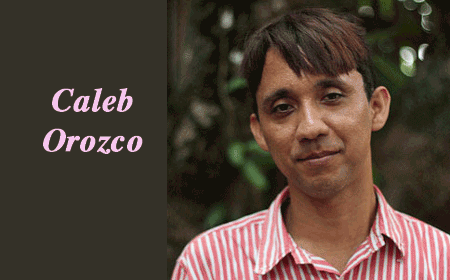The Court has reserved its decision for a later date
BELIZE CITY, Tues. Oct. 30, 2018– Yesterday, Monday, the Court of Appeal heard the appeal of the Government of Belize against Chief Justice Kenneth Benjamin’s ruling that Section 53 of the Criminal Code was a violation of the constitutional rights of Caleb Orozco, the claimant.
In 2016, Orozco, the executive director of the United Belize Advocacy Movement (UNIBAM), successfully challenged the sodomy law, claiming that it violated his constitutional rights to human dignity and privacy. Chief Justice Benjamin agreed with him and his ruling struck down Section 53 of the Criminal Code, in effect giving a landmark judicial green light to same-sex relations in Belize.
After hearing arguments from the two sides today, the Court of Appeal has reserved its decision for a date to be announced.
Following the Chief Justice’s ruling on Section 53 in August 2016, the Roman Catholic Church, Belize’s largest religious denomination, agreed to appeal the substantive decision, while the Government of Belize agreed to file a limited appeal.
The Catholic Church, however, abandoned its appeal in March, leaving the government alone to appeal the Chief Justice’s ruling.
The Chief Justice’s ruling, apart from green-lighting same-sex relations, basically expanded the meaning of “sex” in the Constitution to include “sexual orientation.”
In the preliminary submissions at the Court of Appeal, Orozco’s team argued that the court should not entertain the appeal because it is academic in nature and has no real effect on the core of the Chief Justice’s ruling.
The government’s side, represented by the Solicitor General, Nigel Hawke, argued that the Chief Justice committed a judicial overreach when he expanded the meaning of sex in the Belize Constitution to also mean sexual orientation.
Outside the courtroom, Orozco’s attorney, Westmin James, told reporters, “The lower courts of the learned Chief Justice had found the law, section 53, was in breach of a number of constitutional rights of Mr. Orozco, including privacy, dignity, freedom of expression, equality on a number of grounds. The state has not appealed most of that. They have agreed that the law was unconstitutional, on a number of basis.”
James was asked about his views on the Attorney General’s argument that the Chief Justice went too far and infringed on what should be the policymakers’ intervention and the people of Belize deciding whether or not they want sex to mean sexual orientation in Belize’s Constitution.
James replied, “Well, first of all, we have a lot of arguments surrounding that, that the learned trial judge was correct in his interpretation. What the Attorney General has been arguing in this appeal is that the learned trial judge just applied international law in Belize ,without it being incorporated, and we would have the chance this afternoon if it’s not dismissed to explain that the learned trial judge never did any such thing.”
Solicitor General, Nigel Hawke, told reporters: “The academic point that they have advanced, the court has not ruled on it. Even the court came back and said that they have not quite arrived at a position. Our position is simple. This is a public issue. Testament to the fact that it is a fundamentally and important issue, look how long the arguments took. It took us into the evening and if it is that these points are really academic, it should have been dealt with. I’m saying that there is some fundamental issue here that the court has to grapple with.
“You heard the comments of the court. There are several things going back and forth, and these are public issues, and one of the fundamental issues which we say is, is this a matter for the court to decide or the legislature? That is a fundamental public issue. We all know that the public of Belize has some issues with the definition of sex, as against sexual orientation.”

